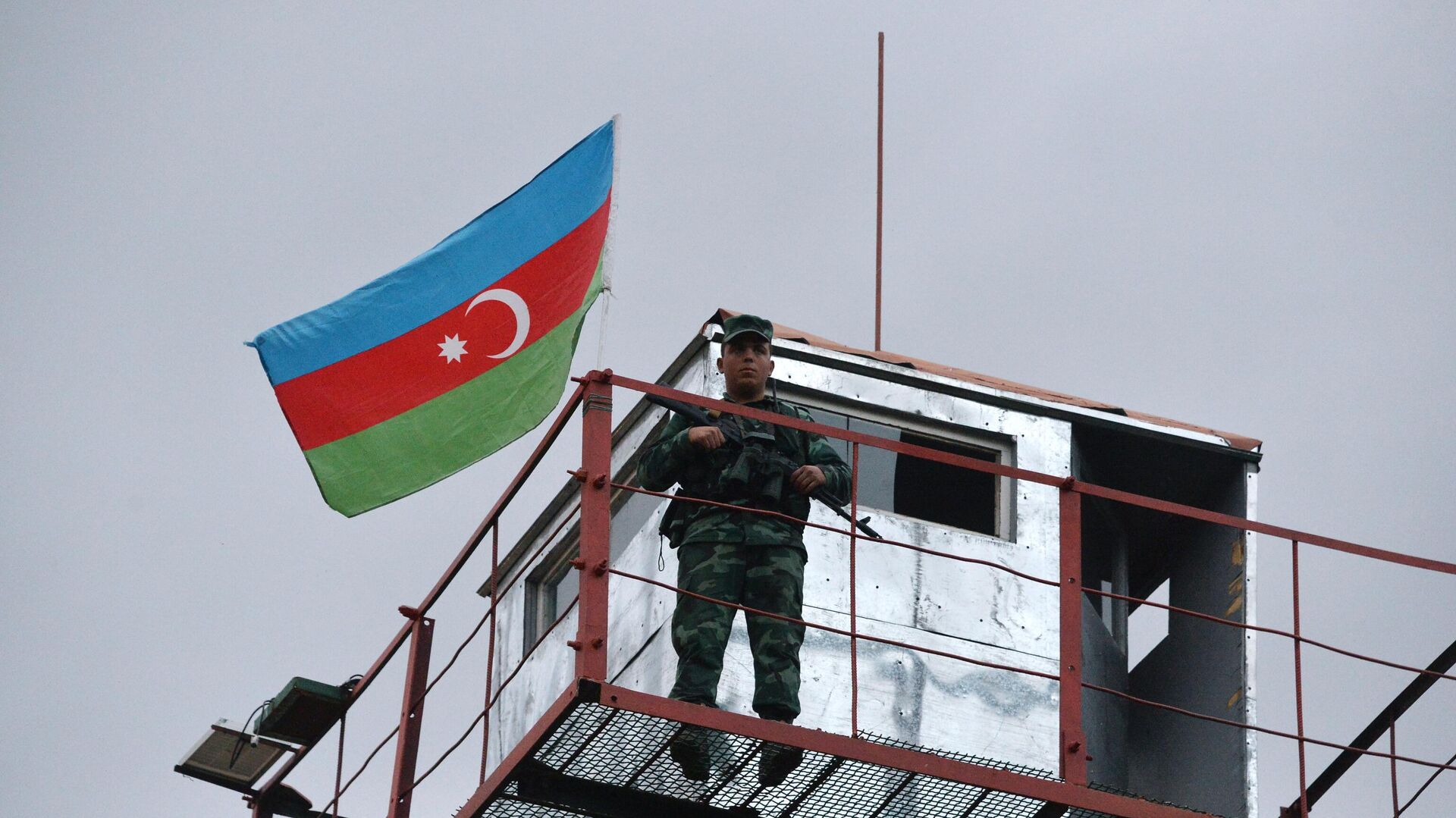Azerbaijan and Armenia have agreed to expedite the coordination of the procedure for the joint work to delimitate the border.
The consent was reached during the latest meeting of the countries' border delimitation commissions in Brussels on Thursday.
The meeting was chaired by the deputy prime ministers of Azerbaijan and Armenia and focused on a range of delimitation-related issues based on the previous agreements reached by the leaders of the two countries.
“In order to determine the legal framework for the joint activities of the commissions, the parties agreed to expedite work on agreeing on the procedure for joint activities of the State Commission on the delimitation of the Azerbaijani-Armenian state border and the Commission on the delimitation and security of the Azerbaijani-Armenian state border,” the foreign ministry of Azerbaijan said in a statement.
The meeting was the third convening of the border commissions, with the sides agreeing to determine the date and place of the fourth meeting through mutual consensus.
Earlier in May and August, the first and second meetings of the border delimitation commissions took place on the Armenia-Azerbaijan interstate border and Russia’s capital Moscow, respectively.
Armenia and Azerbaijan had long been at odds over the latter’s Karabakh (Garabagh) region. Following the Soviet Union’s dissolution in 1991, Armenia launched full-blown military aggression against Azerbaijan, marking the longest and deadliest war in the South Caucasus region. The bloody war ended with a ceasefire in 1994 and saw Armenia forcibly occupying 20 percent of Azerbaijan’s internationally recognized territories. Over 30,000 Azerbaijanis were killed, nearly 4,000 went missing, and one million were expelled in a brutal ethnic cleansing policy conducted by Armenia. Azerbaijan lost control over a significant part of the 1,007-kilometer-long border with Armenia.
On September 27, 2020, the decades-old conflict spiraled after Armenia’s forces illegally deployed in occupied Azerbaijani lands shelled military positions and civilian settlements of Azerbaijan. During counter-attack operations, Azerbaijani forces liberated over 300 settlements, including the cities of Jabrayil, Fuzuli, Zangilan, Gubadli, and Shusha. The war ended in a statement signed on November 10, 2020. Under the statement, Armenia also returned the occupied Aghdam, Kalbajar, and Lachin districts to Azerbaijan. As a result, a significant part of the state border of Azerbaijan with Armenia returned to Azerbaijan’s control.
Shortly after the war, the Azerbaijani authorities voiced readiness and determination to sign a peace treaty with Armenia that would bring the long-awaited peace to the region. In February 2022, Baku submitted a proposal containing five basic principles to Armenia which includes also the joint work for the delimitation and demarcation of the state border.
In April 2022, President Ilham Aliyev met with Armenian Prime Minister Nikol Pashinyan in Brussels to discuss the implementation of the peace agenda. In the meeting hosted by the European Council President, Charles Michel, the sides agreed to set up joint working groups that should work on the issues related to the delimitation and demarcation of the Armenia-Azerbaijan borderline.
President Aliyev later said the Armenian authorities had accepted the principles submitted by Azerbaijan. Foreign ministers of the two countries agreed on the parameters of the participants in the Joint Border Commission in two consecutive phone conversations that followed the Brussels meeting.
On May 24, the first meeting between the Border Commissions of Azerbaijan and Armenia took place on the interstate border where the sides reaffirmed their readiness to work on delimitation and other issues in line with the ultimate goals of the commissions.







 President Aliyev emphasized the critical role of the North-South Transport Corridor in fostering transport cooperation between Azerbaijan and Russi...
President Aliyev emphasized the critical role of the North-South Transport Corridor in fostering transport cooperation between Azerbaijan and Russi...
 Armenian sappers commenced on Monday mine-clearance operations in the territories adjacent to the Saint Mary Church in village of Voskepar (Armenia...
Armenian sappers commenced on Monday mine-clearance operations in the territories adjacent to the Saint Mary Church in village of Voskepar (Armenia...
 Russian Foreign Minister Sergei Lavrov has reasserted that Moscow has no intentions to stop the fighting in Ukraine, even if peace talks commence.
Russian Foreign Minister Sergei Lavrov has reasserted that Moscow has no intentions to stop the fighting in Ukraine, even if peace talks commence.
 Iran has refuted reports of alleged damage to Shimon Peres Negev Nuclear Research Centre located southeast of Dimona, Israel, during the recent air...
Iran has refuted reports of alleged damage to Shimon Peres Negev Nuclear Research Centre located southeast of Dimona, Israel, during the recent air...
 Iran’s Foreign Minister, Hossein Amir-Abdollahian, has labeled a foiled Israeli drone attack in certain parts of the country as a "failure" for Isr...
Iran’s Foreign Minister, Hossein Amir-Abdollahian, has labeled a foiled Israeli drone attack in certain parts of the country as a "failure" for Isr...



